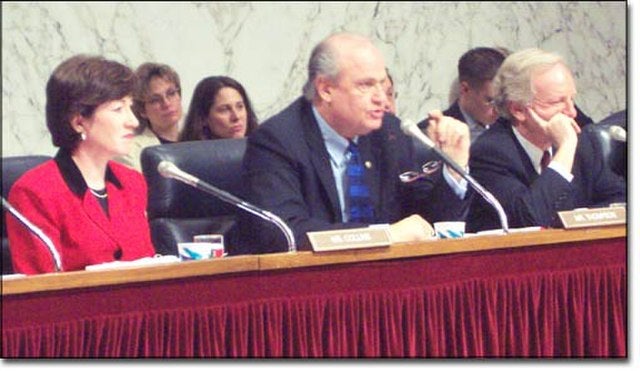WCP: Why Dems Should Act Now on Pro-Consumer Legislation

Posted in News Working-Class Perspectives
Working-class people are exploited not only in the workplace but also as consumers, and they get little in the way of government protection either way. As Marc Dann and Leo Jennings III outline in Working-Class Perspectives this week, both Democrats and Republicans have failed to protect Americans from powerful financial interests. Democrats should act now, they argue, not only because such protections could not only improve working-class people’s lives but also because such policies so clearly demonstrate whose side they are on.
Democrats and Republicans these days agree on almost nothing. They rely on separate sets of facts and hold wildly divergent world views. Yet they have reached consensus in one area: consumer protection. And that hasn’t been good news for the working class.
Presidents from both parties have repeatedly supported regulations and practices that protect the financial industry instead of the rest of us. In 1999, Bill Clinton supported the Financial Services Modernization Act, which rolled back major banking regulations. Since then, administration after administration has refused to press criminal charges against CEOs, executives, and board members who have committed serious crimes – not even the Sackler family, whose promotion of opioids amounted to a form of murder.
Rather than perp-walking corporate leaders down Wall Street, the Department of Justice under Bush, Obama, Trump, and now Biden has settled for “corporate” guilty pleas and non-prosecution agreements. For example, while Chase Bank has paid over $36 Billion in penalties related to 196 enforcement actions since 2000, not a single company executive has been indicted or spent a day in jail. To the contrary, the company’s CEO Jamie Dimon has been welcomed into the Oval Office by every president who has served during his tenure at the helm of the nation’s biggest bank.
The only exception was Enron. But its leaders were brought down not by regulators or the DOJ but by journalists and Wall Street short sellers. The Securities and Exchange Commission and the Department of Justice just came in and swept up the pieces at the end.
As Michael Lewis details in The Undoing Project, the destruction of America’s regulatory framework reached its climax during the Trump administration. Soon after taking office, Trump appointees gutted the Consumer Finance Protection Bureau by replacing consumer advocates with corporate lobbyists who had opposed the bureau’s very creation. This scenario was repeated at agency after agency: critical positions were left vacant or were filled by appointees who had clear conflicts of interest. By the time Trump decamped for Mar A Lago, there were very few cops left on the consumer protection beat.
This handcuffs-off policy leaves working-class families at the mercy of companies who blithely violate consumer protection and lending laws. It also puts ethical, honest business owners at a severe competitive disadvantage to those who cheat.
While the situation is depressing and disturbing, it does create an opening for Democrats. They have been losing working-class voters since the late 1960s, but their efforts to bring workers back to the party have been undermined by their own policies. Clinton signed NAFTA in 1993, and the working class lost jobs. Obama dealt with the 2008 financial crisis by shoveling hundreds of billions in TARP relief to the big banks, but he did nothing for the ten million people who were losing their homes to foreclosure.
We can’t count on Democrats to develop the backbone to prosecute corporate criminals, and strengthening regulatory agencies simply by trying to appoint personnel who are more likely to go after mortgage and student loan servicers, debt collectors, payday lenders, wage and hour violators, and other financial predators is only a temporary fix. In the short time that Democrats control both the White House and Congress, they need to make two concrete moves to protect consumers: eliminate forced consumer arbitration and update antiquated Consumer Protection Laws.
There has been a crack in the wall of forced arbitration when on March 3 congress passed the long-overdue Ending Forced Arbitration of Sexual Assault and Sexual Harrassment Act. This bipartisan legislation enables victims of sexual assault or harassment in the workplace to have their claims and disputes decided by a real court, even if they had signed a forced arbitration agreement. Extending that kind of protection to consumer claims would help level the playing field between consumers and cheating businesses.
Congress should also toughen and modernize the statutes governing debt collectors, credit reporting agencies, robocallers, and companies trafficking in our personal information. Not only would such a move protect consumers, it would also be politically popular. Almost everyone except the most extreme libertarians hates these parasites.
Substantive changes like these would be difficult for future Republican administrations or Congress to undo. Look at the Fair Debt Collection Practices Act: while much has changed since it was passed in 1997, the statute hasn’t seen any meaningful revisions. The Biden CFPB has issued a strong rule interpreting it, but that rule could easily be reversed by the next administration. The Telephone Consumer Protection Act hasn’t been meaningfully amended since before cell phones became ubiquitous. In a recent ruling, the U.S. Supreme court expressed distain for robocalls and all but begged Congress to fix the antiquated law
If Democrats use their control of the federal government to amend and improve consumer laws, they can directly improve the lives working-class Americans. And if they can unite around the cause of financial justice, they might have something substantive to show working-class voters that they are actually on their side.
Marc Dann served as Attorney General of the State of Ohio and now leads DannLaw, which specializes in protecting consumers from various forms of predatory financing. He is also a founding partner of Advocate Attorneys. Leo Jennings III is a leading Northeast Ohio political consultant and media specialist. They were part of the team that sued DeWine and the Ohio Department of Jobs and Family Services.
